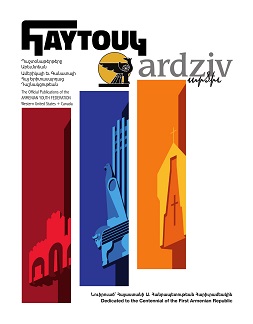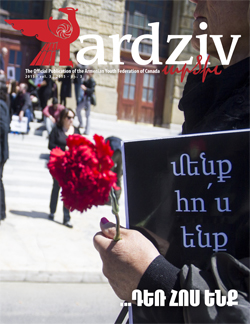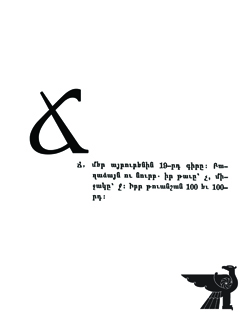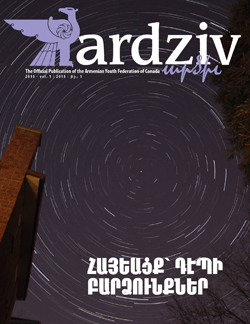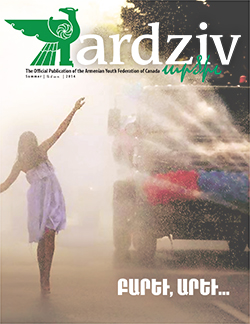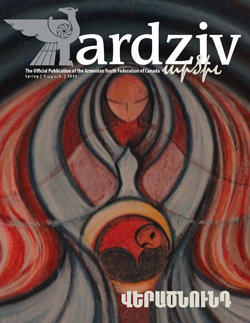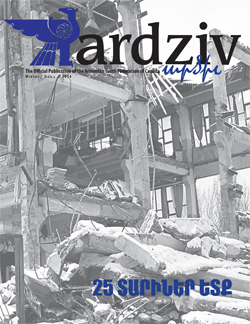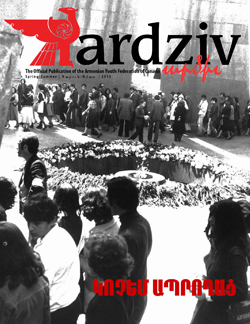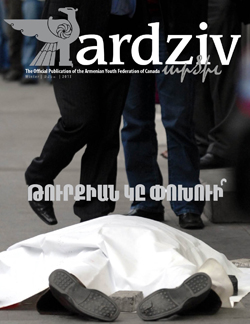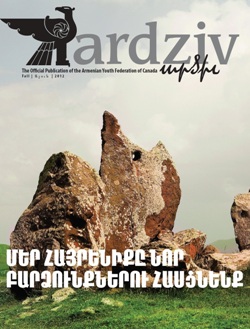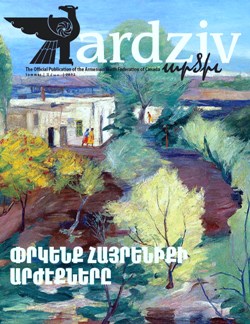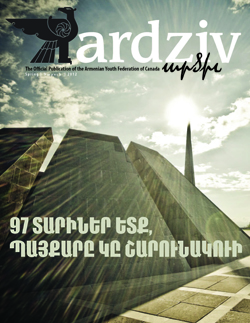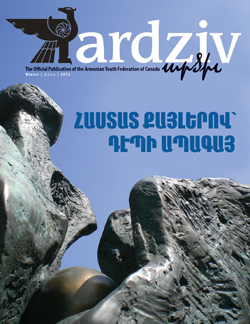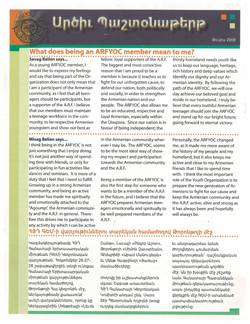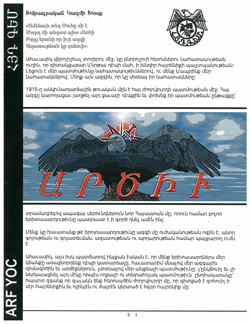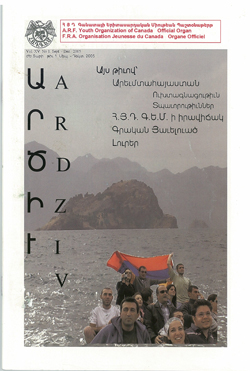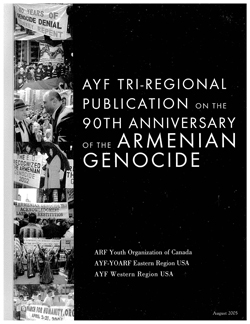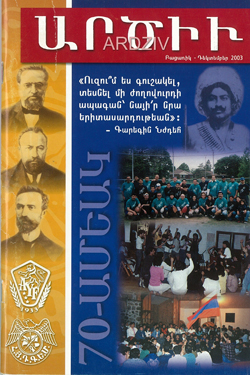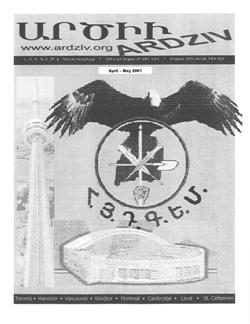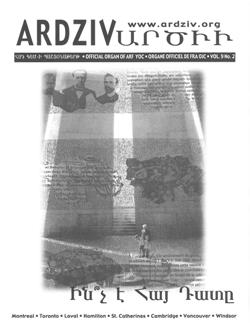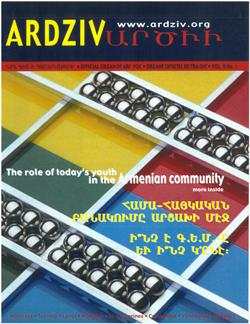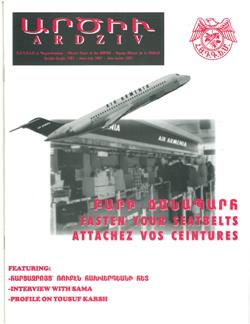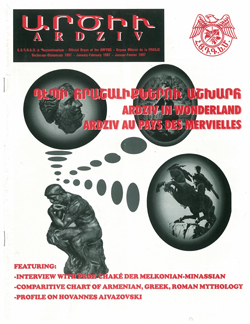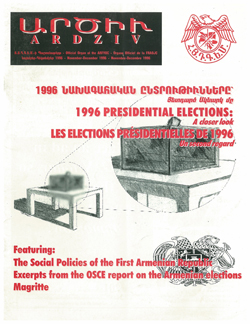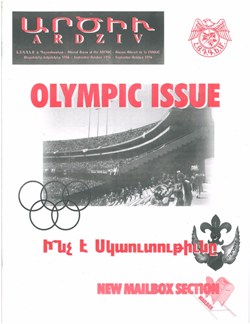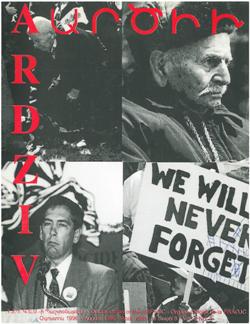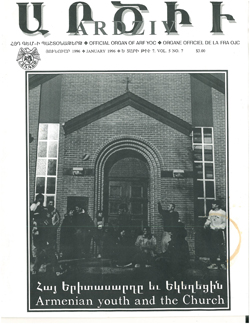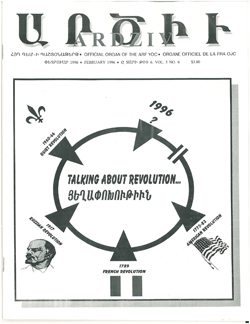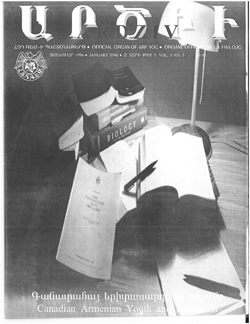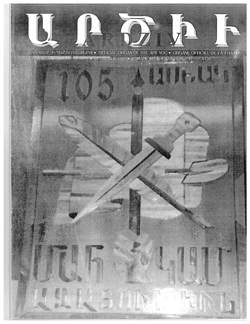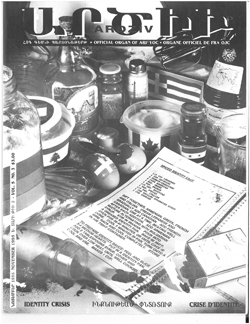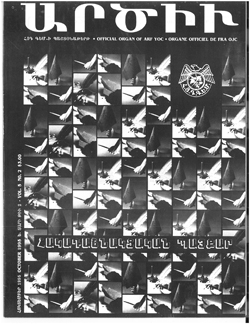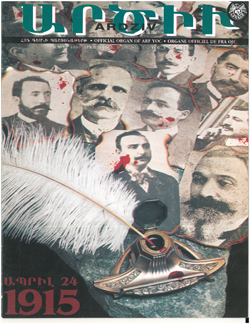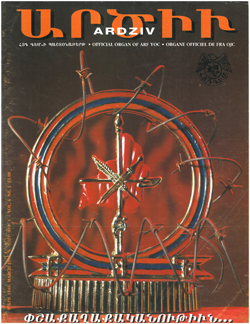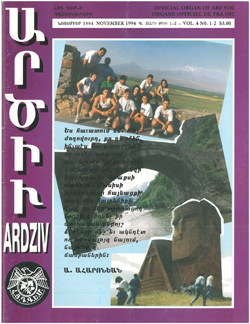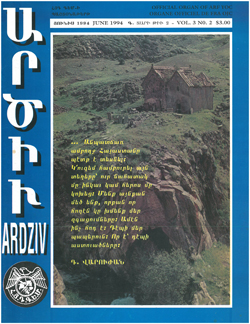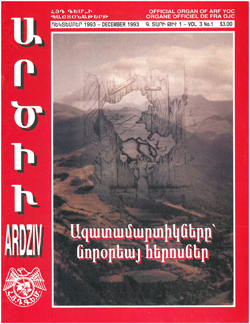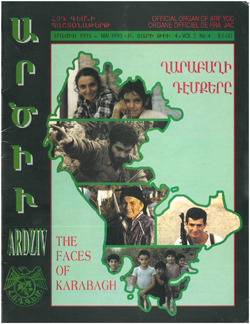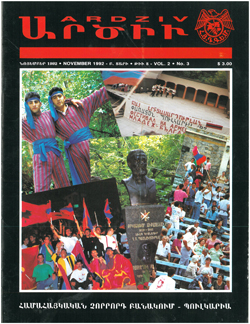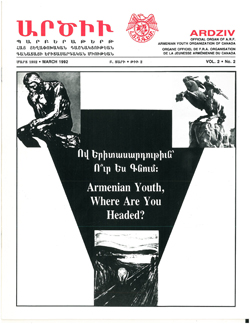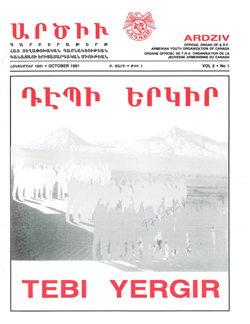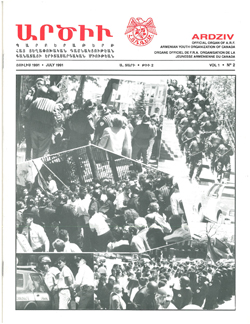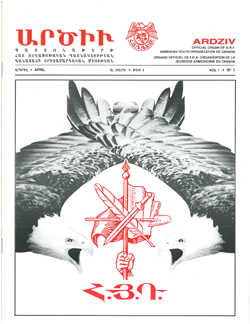Conversations with an Immigrant
By: Varak Babian | Posted on: 30.07.2013Warning: Undefined array key "ssba_bar_buttons" in /home/u108981792/domains/ardziv.org/public_html/wp-content/plugins/simple-share-buttons-adder/php/class-buttons.php on line 602
Warning: Undefined array key "ssba_bar_buttons" in /home/u108981792/domains/ardziv.org/public_html/wp-content/plugins/simple-share-buttons-adder/php/class-buttons.php on line 602
Warning: Undefined array key "ssba_bar_buttons" in /home/u108981792/domains/ardziv.org/public_html/wp-content/plugins/simple-share-buttons-adder/php/class-buttons.php on line 602
Warning: Undefined array key "ssba_bar_buttons" in /home/u108981792/domains/ardziv.org/public_html/wp-content/plugins/simple-share-buttons-adder/php/class-buttons.php on line 602
Like any other Diasporan community, the group of Armenians who chose Toronto as their home have their own communal, though fiercely diverse, tales of an “Immigrant Experience” to tell. Many settled in the city as a result of the civil war in Lebanon in the 1980s, and an array of political crises in the Middle East that followed suit. At this point in time, those who pre-dated this large influx of numbers had already started to set the foundation stones for what we are continuing to build on today. Many of these young men and women had landed at Pearson Airport as early as the 1950s in a Toronto that was very different to what we have grown into today. They had to carve out their own unique identity in a struggle very different to the one we currently navigate. While many were driven by an urgency to recreate their own version of Saroyan’s “New Armenia”, a few made a conscious decision to try their hand at an immersion into a new Canadian identity. Some assimilated wholly into their new environment, yet others found their way back to the fold and played their part in driving the community forward. We chose to sit down with one of the latter examples, and pick the brain of Mr. Souren Chekijian. Mr Chekijian arrived in Toronto with a wanderer’s eye, ready to soak up a new North American experience. Today, he is the author of four Armenian novels about the Diasporan-Armenian experience and former producer and director of Nor Hai Horizon Television. His contributions to the community are both innovative and have left lasting marks and while we could have spent countless hours discussing his experiences within the Armenian community of Toronto and how he has seen it grow throughout the years, we chose instead to focus strictly on the Canadian immigrant experience. We asked him about his very first impressions of the city, how his involvement changed as he grew increasingly comfortable in his surroundings and what he thinks of the changing face of his adopted home.
VB- Shall we set the stage? You arrive in Toronto in 1967. It’s the Summer of Love, the Leafs have won the Stanley Cup and you are one of the city’s newest inhabitants. What were those early days like?
SC- Yeah…I arrived in June, the country’s 100th anniversary…I have a feeling I must have jinxed them…Yeah, the first year and a half I was like a tourist, I was having a lot of fun. You come with big plans, right? Especially since at the time, there was no war in Lebanon. The civil war hadn’t started yet, so…Lebanese society, it’s very money conscious you know, very…
VB- Status driven?
SC- Yes, yes. If you didn’t have money, you wouldn’t be anybody. So…then I read a lot you know. My mom was from Cyprus, she spoke English. I had an uncle who had a cleaner’s shop, next to a hotel in Beirut, so the American tourists, they would sometimes leave their books at the hotel. The hotel personnel didn’t read English, so, they would give it to my uncle, who would give them to me. So, I had a pretty impressive collection of these pocket books, 500…mostly mysteries and stuff like that, but there were a few very good pieces of literature….When I came here, I knew quite a bit about North America.
VB- Anything about Toronto at all? Did you have any expectations?
SC. No, not really particularly. Montreal was the centre of Canada at the time, but Toronto was, like, at the time seemed to me like a big village. On Sundays, the buses ran only in church service times, to get a bottle of whiskey, or something you had to fill out paperwork. It’s incredible. You wouldn’t believe it, wouldn’t recognize it.
VB- One of Toronto’s most well-known and respected characteristic is its diversity. When you arrived, was it still very white and Anglophile or was it already turning into the multicultural haven it is today, or…
SC- Well, let me put it this way, I worked at Sick Kids Hospital, there were 2000 people employed there, yet it took me three months to meet somebody who was born in Toronto, ha-ha so…there was a lot of immigrants, but now there seems to be an overwhelming number. At the time it seemed to be about 50/50 or less. But…OK, here is the thing. Trudeau created this thing- a folklore or an aura, spotlight- on multiculturalism. There used to be no such thing- as a concept it simply didn’t exist. When you spoke about that, people got passionate and started to go back to their roots. So it was the 60s/70s and, you know, the hippies were doing the same thing, so…that was part of the reason people started to naturally segregate more. I came into something very different here. In Beirut, we lived in self-imposed Armenian ghettos. Armenians always stayed with Armenians, and growing up, living in Lebanon, I didn’t need Arabic you know? The streets were filled with Armenians. Anyways, I felt really bad about it, because I was born there, you know and people talked to you and you can’t even talk to them properly. As soon as you open your mouth, they ask, “Are you Armenian?” because of the accent, so, I decided when I came to Canada, I’m not going to do the same thing here, make those same mistake here.
So, I came with a friend, we rented an apartment together, St. George, south of Dupont- very close to the old A.C.C. He was totally immersed with Armenian activities, and I was completely out. So, for about three years, I stayed out. I wanted to be Canadian, but…Ha-ha, I couldn’t, you know. I had the accent, especially in my case because I wasn’t born here, I was 24 when I came.
VB- Even being born here, growing up here I get that and it catches me off guard. “Where were you born?” I always say, “It’s nothing exotic- Toronto, North York General”. It must be the influence of Armenian on my English, the tonality. Coupled with the dark eyebrows…
SC- Yeah, why not – and you are born here, you shouldn’t have those problems. In my case the clash of cultures was very strong. Because, well, I didn’t come here as a refugee. You know refugees arrive, and the common thought is, “no matter what it is, it’s better than home”. I wasn’t running away from something, in my case, I wanted to move to Canada to study, I wanted to go to university. I had heard from people, especially in the States, people who left Beirut that “you can cut grass and finance yourself to go to university”, which was not the case of course. They probably didn’t even go to university. So, when you have that mindset and then you come here, and you can barely make a living, pay the rent, and everything else. We didn’t have anything…you need furniture; none of us knew how to cook…
VB- Before the days of trusty Pizza-Pizza delivering comfort.
SC- Ha-ha. Yeah- my first dinner was at Harvey’s, right by Varsity Stadium. There was a Swiss Chalet next to it, another place we used to frequent a lot. There was only one store that sold Middle Eastern Food: Ararat, on Avenue Road; they were Egyptian Armenian.
VB- Yeah that place is still around. Have they been here for generations?
SC- They’ve been here longer than me…there was a big upheaval in Egypt in the 50s, so a lot of Egyptian Armenians moved here during that time.
VB- So you were indulging in some very Canadian eating at Harvey’s and Swiss Chalet, and you also had a uniquely Canadian experience, working at the CBC, correct?
SC- Yeah, 1973 to 76. By that time, I had gone to university. I started at Ryerson, went to U of T, then attended York for film studies. I had gotten my university fix and as soon as I got in at the CBC, I put school on pause. I wanted to be on the creative side, but they hired me as a cameraman, a technician. They called it the engineering department. Even though I tried, I couldn’t cross the barrier. I had spoken to them several times, gone through several interviews, but my request was always politely turned down. I asked if I can take a course, do anything proactive, she said,”you have an accent”. I thought “Geez, I’m not applying to be an actor or something”, so, they seemed to believe I would never make it on the creative side.
VB- George Stroumboulopoulos, Gurdeep Ahluwalia, Jian Ghomeshi – these are the big names in our living rooms every night. Could you have made the prediction that last names that ring with obvious ethnic certainty would be so and in the spotlight? Did you notice a shift?
SC- At the time I was at CBC, there was one Indian technician, one guy from Quebec, and then me. The rest were all English Canadians. So, years after they started hiring you know “token ethnics”, but not when I was there. Ghomeshi is a very intelligent guy, very well read. He knows what he’s talking about. I enjoy listening to him. My early North American tutorial sessions were via the Johnny Carson show. I used to watch it religiously, every night. I was late to work every morning. I always got shit for it. I used to stay up until 1, and of course there was the Steve Allen show that followed, very funny, so I ended up getting to bed at around 2. These people were a part of my life. When Stompin’ Tom Connors died, that weekend I was watching all the old clips, Hockey Night in Canada…I get emotional when I hear those things. But my friends were not the same; they didn’t have the same connection. I felt that way because I immersed myself in the Canadian experience.
VB- Did you ever feel like Toronto, or even the Diaspora- was a stepping stone? Something temporary, for the time being? Did you feel like Armenia was the end goal, the place you would end up living?
SC- No, no. At the time, during the Soviet Era, the Soviets looked so powerful. Nobody thought they would crumble…Nobody. Everybody was surprised – even the Americans who were trying to get that result were surprised. That’s why I never thought I would live in Armenia, although I visited, and being there was important.
There’s something funny about that, you go to Armenia and everything is fantastic. The first time I was there, I got there very late in the night. I drank a fair bit at the hotel bar, I was buying drinks for everybody and I was excited. It was a strange feeling. I felt at home and at the same time like a foreigner. It’s an issue that will probably be resolved eventually, but not in my generation.
It’s not to say that I didn’t experience a pull, a connection. That first time, I went on a bunch of tours. We had a guide who took us to Ardashat, to a village. We spent time with a family there. They had lots of livestock, pigs, you name it. They lived very well at the time, so, we got to drinking. One of the farmers rushed in and exclaimed that they had discovered king Ardashes’ remains and asked us if we would like to see it. We said sure, of course, and we were on our way. We piled into 3, 4 little cars and headed off. We started driving off the road and into the mountains. Of course they couldn’t find anything, maybe because there was nothing to find or because most of us were really drunk. So, the sky was overcast, heavy fog. There was a patch in the fog, Ararat was very close, and it looked alive, powerful. I was standing on this hill with nothing around, not even a pebble, and I felt, “this is mine”. Something chemical worked in me at that moment, which I didn’t get in Sevan, or Keghart. It was a connection to pure land. It was a curious experience.
VB- At this point, my generation has a few pop-culture reference points for Armenian-ness. The Principal Skinner from the Simpsons, or the reality mavens the Kardashians- however flawed they all may be. Did you feel that you had to be more of an ambassador for your culture without similar references?
SC- Yes, a lot more because they didn’t know anything about us. So whatever you presented was what they would know.
VB- Any pressure?
SC. I didn’t necessarily feel pressure. I looked at it as being really fun. It was up to me to paint this picture. I could say whatever I wanted, and it would stick.
VB- We have talked a bit about the Armenian experience, how about some nostalgia about our city? Any aesthetic shifts you have noticed, even fads that have come and gone. I am curious to know what the vibe of the city was at the time, in the 60s and 70s.
SC-. Toronto used to be very backwards, in terms of restaurants or service industry. Things changed a great deal when General de Gaulle came to Montreal and said “Vive Le Quebec Libre!” All the major companies escaped from Montreal and fled to Toronto and, of course, everything went up: businesses, head-quarters, restaurants. Toronto changed a lot. It became more cosmopolitan, sophisticated. But it didn’t grow into the shift, it wasn’t organic like in other places.
VB- Was there a singular moment when you thought, “I made the right move, Canada is home”.
SC- I was lucky. In 69, I drove east, New Brunswick, Nova Scotia. You realize how big the country is when you drive through it – the vastness of it, the untouched land. I remember an ironic moment. I was going through the Trans-Canada Highway. Small highway, 2 lanes and we were passing a very small area, about 10 houses. One of the houses was on fire. I’m talking totally engulfed in flames, burning. I was thinking, “What do they do? There can’t be a fire station anywhere close”. But this is the same country where you can live side by side with millions in an area of Toronto, so much variety, so much difference within a hundred miles. Certain things become familiar, become tradition. When I hear the Hockey Night in Canada theme song I get emotional, or Foster Hewitt – these people were in my life all the time.
VB-Hold on, so you’re telling me you weren’t a hockey fan in Beirut? I’m surprised..
SC-Ha-ha…I didn’t even know there was such a thing. These people helped me, the CBC, Bob Kerr, Peter Gwozski. I’m lucky, I’m sort of steeped in that- most Armenians aren’t. You learn a lot about the country, problems in the Maritimes, issues in Alberta, it gives you more of a connection to a greater Canadian identity.
VB- We currently have a memorable mayor in office. Any favourite political figures?
SC- Trudeau. He had nerve, he would stand up to the Americans and they didn’t like that. And of course he loved Canada and that passion was contagious. I liked Chretien too, his slyness made me smile.
VB-I’d just like to end by asking, if there is an image, a memory that defines Toronto, or Canada for you.
SC- University Avenue. I was walking to work, through Queens Park, and I noticed the Premiere of Ontario, he was pulling into the parking lot. Just driving by himself. I was so impressed, because in Lebanon, there would be 5 motorcycles accompanying him, with obnoxious police wrangling the crowd. But there he was, so nice, so alone. Back home politicians are hard to get at. When I was taking a course at U of T, I saw a poster announcing that the defense minister was going to speak at the university; I decided to go check it out. It was in a lecture hall. There was a balcony, and they had set up a microphone in the lobby, so he could address the crowd. It was the 70s – all kinds of activism, protesters. So the guy walked in and they wouldn’t let him speak, not even two words. Constant booing, hissing. I was shocked. I thought if this was Beirut, those disruptive students would be getting beat with the butts of police guns and batons. I remember thinking there was such a difference. Politicians here seem like they would do anything for a vote. I’m sure if you were to invite a hundred politicians to your kids 7th birthday party, more than a handful would make an appearance. Votes count here. Everyone counts.










